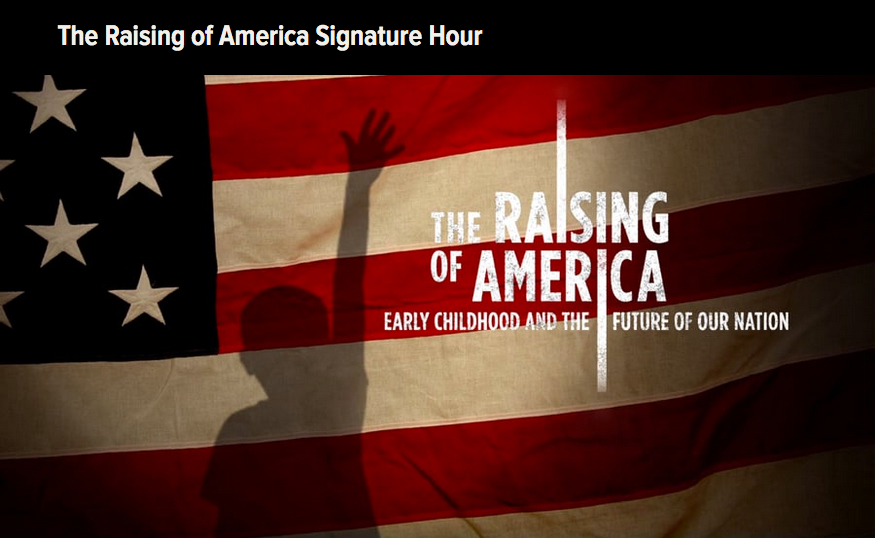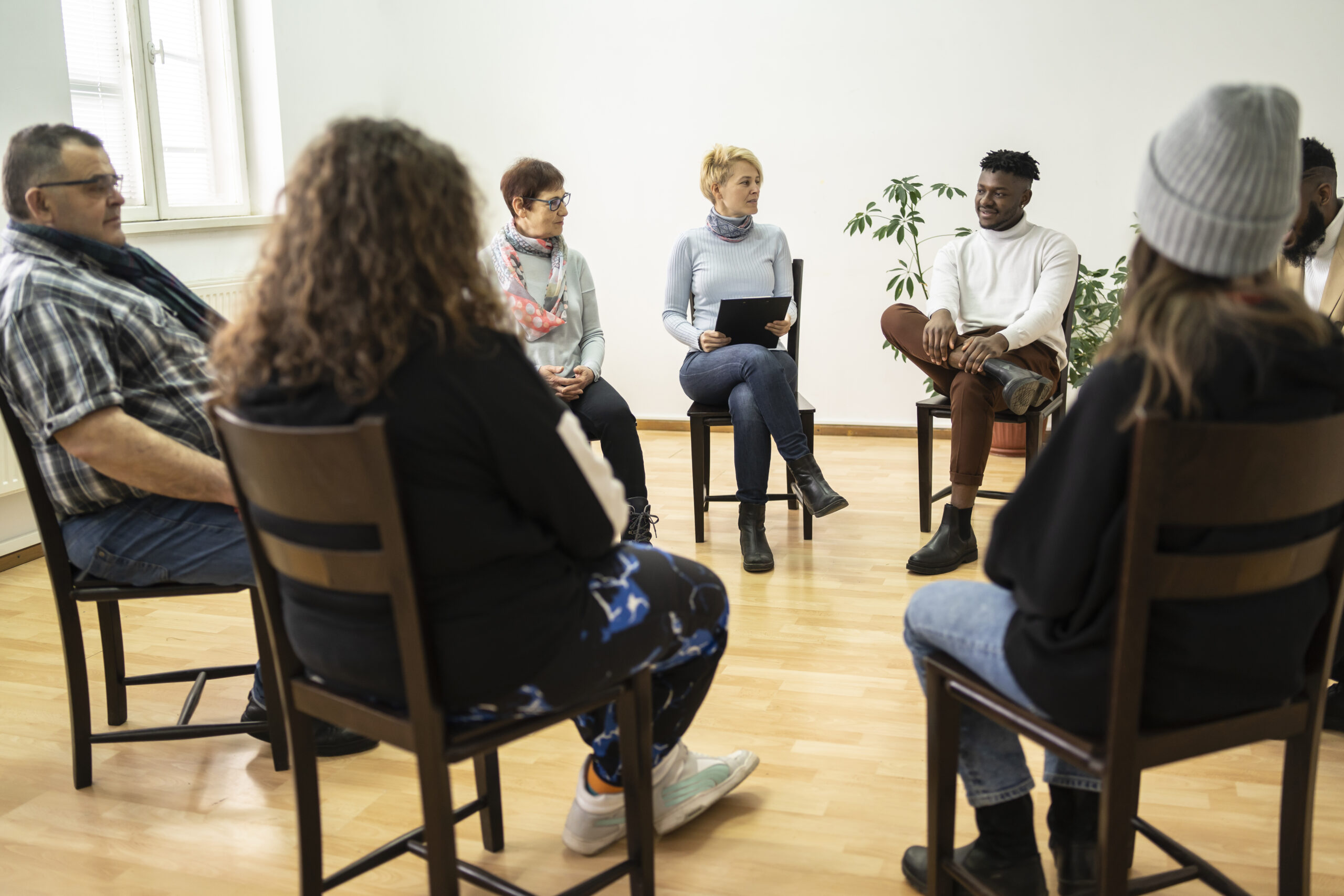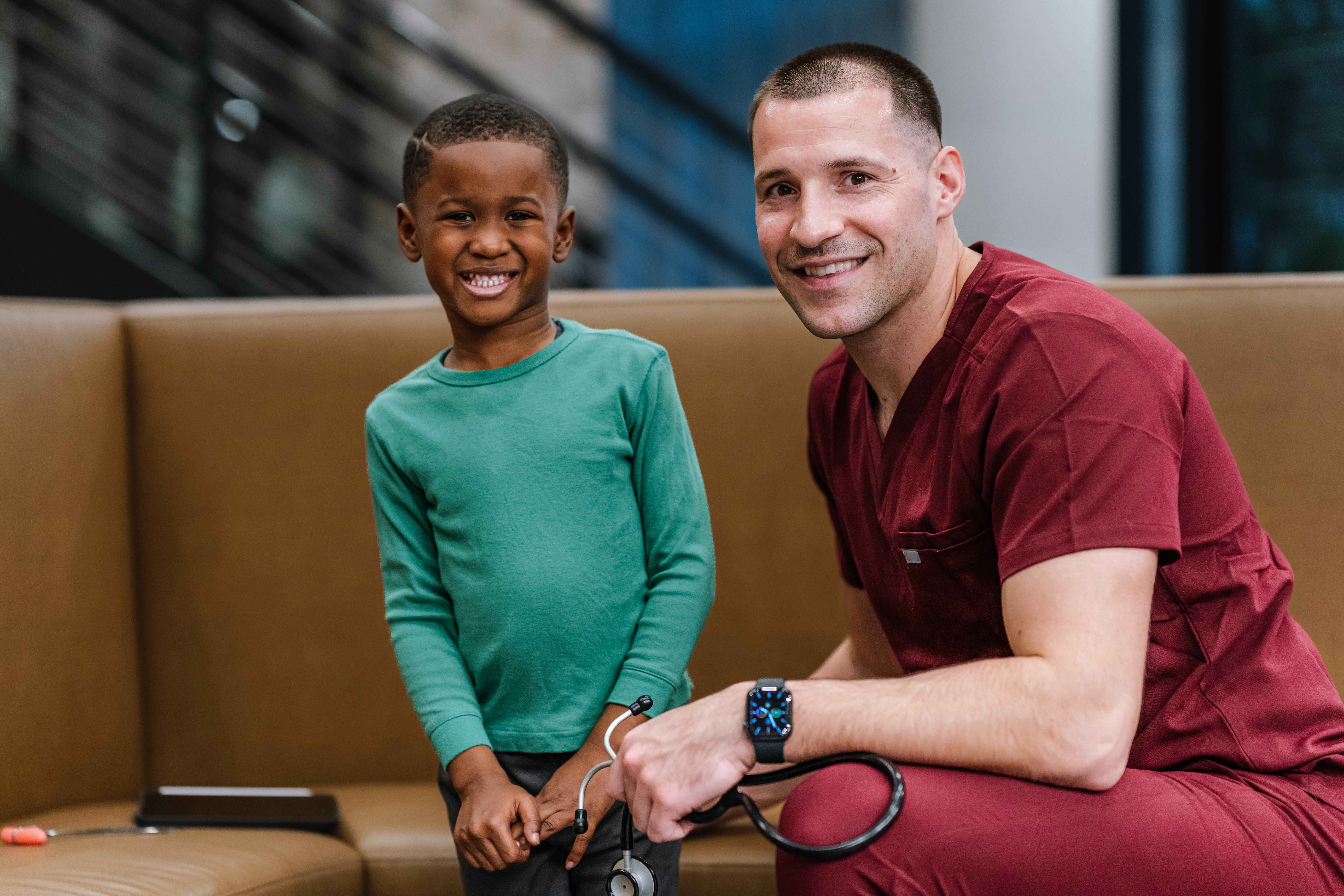“The Raising of America” — by the producers of “Unnatural Causes: Is Inequality Making Us Sick?” — is a five-part documentary series, online learning hub and public-engagement campaign that aims to reframe the way Americans look at early child health and development. The series illustrates how a strong start for children not only leads to better learning, earning, and physical and mental health, but also to a healthier, safer and more prosperous nation. From now until April 17, you can access the entire documentary via web streaming at http://www.raisingofamerica.org/watch
The U.S. is the wealthiest, most powerful country in the world. So why has our rate of child well-being fallen to 26th? An alarming number of American children face challenges to development from the start, and are entering adulthood with learning delays and mental and physical health difficulties.
“The Raising of America” premiered online in November 2015 and on public television and has already garnered great enthusiasm for its breadth and depth with which it shines a light on the issues facing young people growing up in America.
“As a mission-driven organization, Kaiser Permanente is committed to making investments in transforming how the world thinks about and delivers on health,” said Cynthia Telles, chair, Kaiser Permanente Community Benefit Committee, and member of the Kaiser Permanente Foundation Health Plan and Hospitals board of directors.
Kaiser Permanente provided a $100,000 grant from the Kaiser Permanente National Community Benefit Fund at the East Bay Community Foundation to support the development of the films.
“As a nation we must step up and solve underlying environmental, economic, social and community barriers that are holding people back — most especially our children — from enjoying the total health and well-being they deserve,” said Raymond J. Baxter, PhD, senior vice president, Community Benefit, Research and Health Policy at Kaiser Permanente. “Issues these films address are vitally important. Hopefully, conversations this series inspires will result in renewed efforts for everyone to help create healthier environments for our children from the very beginning of their lives.”
Interweaving stories of parents with discoveries from neuroscience, “The Raising of America” investigates these questions through different lenses: What does science tell us about the enduring importance of early life experiences on the brain and body? What it is like to be a parent today? And what policies and structures help or hinder the raising of healthy, happy and compassionate children? The first episode covers all three of these issues. The four subsequent episodes each dive in for a closer look:
- “Once Upon a Time: When Childcare for All Wasn’t Just a Fairy Tale”: Imagine how American life might be different today if high-quality early care and education had been available to every family that wanted it for the past four decades.
- “Are We Crazy About Our Kids?”: Demonstrates how investing in high-quality early care and education pays for itself in many ways and many times over.
- “Wounded Places: Confronting Childhood PTSD in America’s Shell-Shocked Cities”: reveals that too many children, especially children of color in neighborhoods of concentrated poverty, show symptoms that resemble post-traumatic stress syndrome — except for many there is no “post.” How might they and their neighborhoods heal from the trauma? This episode travels to Philadelphia and Oakland, where a long history of racial exclusion has ravaged entire neighborhoods and exposed children to multiple adverse childhood experiences (or ACEs). As pointed out in the film, ACES was designed by Vincent Felitti, MD, a Southern California Kaiser Permanente physician, and a colleague at the Centers for Disease Control and Prevention, which found a strong relationship between trauma and obesity, as well as a whole host of other chronic health problems.
- “DNA Is Not Destiny: How the Outside Gets Under the Skin”: explores the exciting new field of epigenetics, and the evidence that fetal and early child environments literally become part of us. They change not our genes, but the epigenetic “dimmer switches” that turn genes on and off — with enduring consequences for mental and physical health.
Kaiser Permanente’s support of “Raising of America” is one example of the organization’s ongoing community benefit work to address health in the places where people live, work, learn and play.
The above article was originally published on Kaiser Permanente’s Share website.



